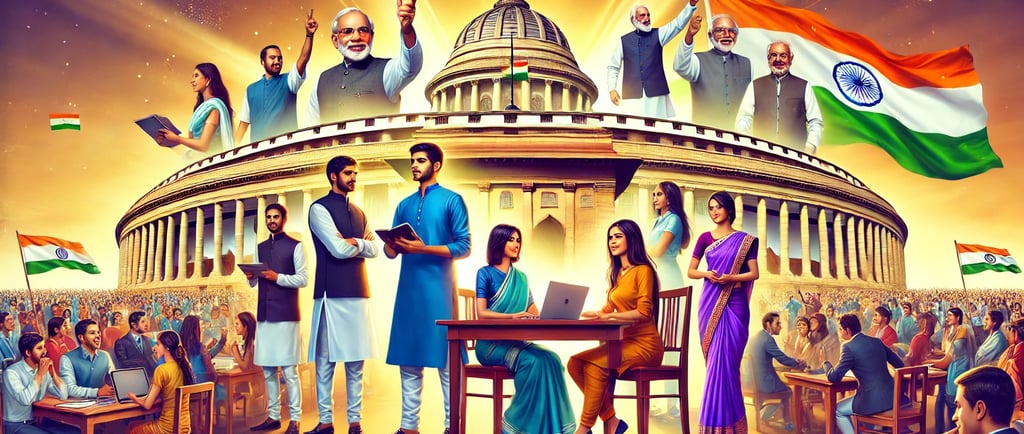Youth in Politics: The Rise of a New Generation of Leaders
Youth engagement in politics is not merely a trend; it is a necessity for a thriving democratic system.
POLITICS


The Changing Landscape of Political Leadership
In recent years, the political arena has witnessed a remarkable transformation. Increasingly, young individuals are making their mark in governance, challenging traditional norms and elevating the discussions that shape our society. This shift indicates a substantial generational change as passionate youth begin to take on leadership roles that were traditionally reserved for older, more experienced politicians.
Empowering the Next Generation
Youth engagement in politics is not merely a trend; it is a necessity for a thriving democratic system. With increasingly diverse perspectives and innovative ideas, the new generation of political leaders has the potential to address contemporary issues more effectively. Young leaders often exhibit commitment, driving movements focused on climate change, social justice, and equitable economic opportunities. We can have a deeper understanding of it by using some of these examples. At the age of 28, Tejasvi Surya (BJP) was elected as a Bengaluru South member of parliament in 2019.Renowned for being an explosive speaker and for playing a prominent part in youth mobilization. Kanhaiya Kumar (Congress) turned out a former student leader at JNU who entered national politics and promoted social justice and youth problems.
Challenges and Opportunities for Young Leaders
Despite the promising emergence of youth in politics, challenges exist. The political landscape can be difficult, often marked by bureaucracy and firmly established interests resistant to change. However, these obstacles also present opportunities. Young politicians can leverage digital platforms to connect with constituents, mobilize support, and create grassroots movements that resonate with the electorate’s needs.
Moreover, the use of social media has revolutionized political campaigning. Young leaders adapt in these tools can amplify their messages, creating networks and dialogues that transcend geographical boundaries. This modern-day outreach can foster a more informed citizenry, engaged in the decision-making process.
Conclusion: A Vision for the Future
The rise of youth in politics heralds a new era of leadership characterized by inclusivity and innovation. As they navigate the complex world of political dynamics, these young leaders are shaping policies that align with the realities of today’s society. By empowering youth and fostering their involvement in politics, we can ensure a vibrant democratic process that reflects the diverse values and aspirations of our populace.
